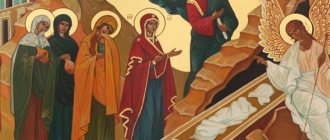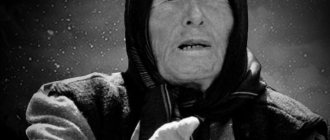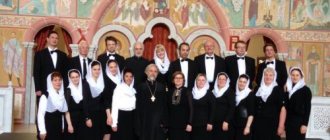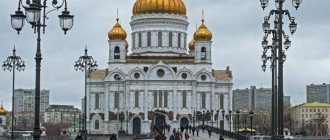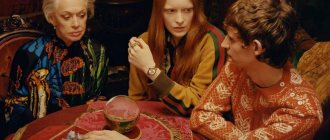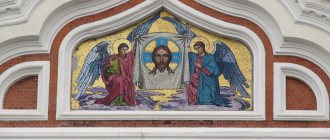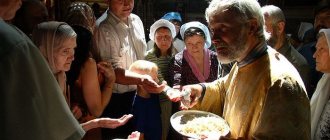The history of the holiday
This holiday has its roots in the times of the Celts, who lived more than 2000 years ago in the territory of modern England, Scotland, Ireland, and Wales. The tribes were engaged in agriculture. Therefore, the change of seasons, which were divided into light and dark, was of particular importance to them.
During the light season, the Celts grew fruits and vegetables and also prepared for winter, which was considered the dark season. After the completion of the work, people celebrated this event. According to their calendar, the beginning of the new year fell at the end of October. At the same time, on November 1, the Celts celebrated Samhain, or New Year. It was believed that during this period the world of the living became closer to the world of the dead. To protect themselves, the Celts wore scary costumes, lit bonfires and held noisy parades.
After the Romans conquered the Celts, they borrowed some of their traditions. During the same period, various festivals began to be held at which Pomona, the goddess of fertility, was sung. Subsequently, the Roman Catholic Church named November 1 All Saints' Day. Roman clergy tried to replace pagan rituals with church rituals, but this did not work out. Today, a pagan holiday that combines all three ancient rites is called Halloween.
Orthodoxy and Halloween
The Russian Orthodox Church has a clear opinion - it does not bless Christians for participating in the Halloween holiday. Moreover, not only do not participate, but also do not support those who conduct it. There are several reasons for this:
- The origin of this holiday, its method and essence are strictly pagan and incompatible with the principles and foundations of the Christian faith.
- Halloween is a blasphemous mockery of All Saints' Day.
- Dressing people in costumes of sorcerers and monsters is unacceptable for a believer, since it contradicts Scripture and church canons.
- The attributes of the holiday are unacceptable for an Orthodox person, since they are completely opposite to Christian values and replace them: magic, witchcraft, spirits of evil, pagan rituals, sacrifice, evil pranks. The obvious association of Halloween with paganism makes it impossible for a true Christian to take part in it.
- Halloween acts as a weapon for demonizing the consciousness of children and youth; it promotes fashion for the paraphernalia of death and witchcraft, glorifies cruelty and neutralizes mercy and goodness.
The last point of this list is especially important, since children's consciousness is extremely vulnerable to information coming from the outside. Children don't just dress up as evil characters, they identify with them, and this creates a much closer connection for them than for an adult. That is why the seemingly fun dressing up causes serious destruction to a child’s consciousness.
Attention! Active participation in such events leads to serious mental and personality disorders.
Mandatory attributes and traditions of the holiday
The Celts were sure that on the night of October 31 to November 1, the border between the world of the living and the dead opened. To protect themselves from the shadows of the dead, fires in houses were extinguished and terrible outfits were put on. It was believed that this would scare away evil spirits. It was also customary for the Celts to tell fortunes on this day and sacrifice animals.
Only part of the traditions has survived to this day. An important attribute of Halloween is a head carved from a pumpkin with a scary face. Candles are inserted into it. It is also customary to wear suits. However, they don't have to be scary.
Another popular tradition is begging for sweets. To do this, children dress up in costumes, take special “Jack-O-Lantern” buckets and head to their neighbors’ houses shouting the phrase “trick or treat.”
In Western countries, on Halloween, people decorate their homes not only with carved pumpkins, but also with all sorts of attributes from horror films. For example, artificial spider webs or bats cut out of paper are often used for this purpose. Often images of witches or ghosts are used as decoration.
There are no special dishes prepared for this holiday. However, in England it is customary to serve pumpkin food on this day. Pumpkin pie is considered a real table decoration. The theme of the holiday promotes the development of imagination. So, you can make a “living hamburger” for children. To do this, you can put almonds in a traditional bun with a cutlet, and the “eyes” can be made from boiled eggs.
How can Christians celebrate Halloween?
Every year on October 31st, people around the world, and especially in the United States of America, celebrate Halloween or All Hallows' Eve. Halloween, a holiday aimed at young children who enjoy creating fancy costumes, baking treats, and pumpkin carving, has become the second largest commercially celebrated holiday in America, generating more than $8 billion in sales.
What is the origin and history of Halloween?
The roots of Halloween can be found in the ancient Celtic festival of Samhain (pronounced so-en, meaning "end of summer"). For the Celts, who celebrated their new year on November 1, this day marked the end of the harvest and the beginning of winter, the end of the world and the beginning of darkness, the end of life and the beginning of death. Celtic priests, called Druids, built large fires on the hilltops around which people gathered, and sacrificed crops and animals to the Celtic gods as an offering of thanks for the harvest of those years and as a request for favor in the new coming year. Some suggest that human sacrifices were also performed on these bonfires, but modern scholars believe that this is not the case. It was seen as a very spiritual time.
It is also believed that on the eve of Samhain, the line between the living and the dead became thin, and the spirits of the Otherworld were allowed to roam the earth during this day, both the spirits of deceased loved ones during the previous year, and the evil spirits of ghouls and fairies seeking to cause harm and damage . The Celts, hoping for a visit from their deceased loved ones, set a place for them at the table and prepared a feast. They also placed treats outside their home for wandering spirits. To ward off evil spirits from their homes, the Celts were known to place carved pumpkins (or turnips) in front of their doors. If they went out at night, they would put on costumes so that if they encountered an evil spirit, they would be mistaken for the evil spirit themselves. Then people would not be in danger of being harmed by ghosts.
Origin of All Saints' Day
By 43 AD e. The Romans successfully conquered most of the Celtic lands. Over the next 400 years, Samhain was combined with two Roman holidays: Feralia, a day when the Romans remembered their dead, usually in late October, and secondly, Pomona, a day to honor the Roman goddess of fruits and trees. In 609 AD. Pope Bonafis IV established the Catholic holiday of All Martyrs' Day in honor of the first Roman martyrs, and this holiday was later expanded by Pope Gregory III to include all saints. It is still practiced today on November 1st, as All Saints' Day. November 2 is also celebrated as All Saints' Day, mainly to honor the saints and pray for the lives of the recently departed who have not yet reached heaven. There were traditions of ringing bells for souls in purgatory; poor people, mostly children, wandered from house to house and received “soul cakes” in exchange for prayers for deceased loved ones; people even wore suits to protect themselves from the wandering souls of the dead.
Reformation Day
During the Protestant Reformation in the 16th and 17th centuries, Christians responded to Catholic holy days such as All Saints' Day. Many Catholic ideas, such as Purgatory, were considered erroneous. Purgatory gets its name from the idea that there is still some sin or impurity that needs to be cleansed before anyone is allowed into Heaven. Therefore, it is considered a place to contain souls who are not quite suitable for heaven, but not so bad that they end up in Hell. Protestant Christians believed that after death, no amount of prayers or indulgences—payments made on behalf of deceased loved ones to hasten their stay in Purgatory—could help a loved one in that state. Many Protestant Christians began to celebrate Reformation Day instead, providing different options for people who did not want to celebrate the Catholic holiday. Some dressed up as biblical characters or the Reformers themselves and used the day as an opportunity to gather together, pray and fast. Today, many Lutheran churches celebrate Reformation Day with the traditional color red, which symbolizes the Holy Spirit and the Martyrs of the Saints. Martin Luther's hymn "A Mighty Fortress is Our God" is traditionally sung, and many schoolchildren perform plays reenacting some of the events in Martin Luther's life.
You might be thinking... Wow! This is a big story. But does this mean that we should celebrate Halloween or not?
- Some Christians reject Halloween.
Today, many Christians view Halloween as a pagan holiday during which they worship the devil and glorify evil. They want nothing to do with evil and will do everything in their power to protect themselves and their children from this devilish holiday. Many churches have replaced Halloween with fall festivals, which are more family-friendly and provide a safer environment and a fun alternative to trick-or-treating. Some choose to celebrate Reformation Day instead because they believe Halloween is something that should be rejected as a pagan holiday.
- Some Christians embrace this holiday, especially in the United States.
They say Halloween is a fun, harmless opportunity for kids to dress up, get lots of candy, and have a good time. It's a time for cute decorations, parties, pumpkin carving, laughter, and the fun of playing or trick-or-treating with your neighbors. For many, Halloween has generally become a non-religious holiday, so some Christians are not against assimilating and joining this holiday without giving it any serious significance.
Is there a third way Christians could potentially respond? Can Halloween be fixed?
- Some Christians atone for this holiday.
If we as Christians believe that Jesus came to redeem all things, to make all things new, we must answer with a resounding “Yes”! Jesus says in Revelation 21:5, “Behold, I am making all things new.” But how? Sometimes we make quick judgments or skip an issue instead of stopping to explore and talk about it.
Does this mean that evil is out there, and as long as we close our doors and turn off our lights, evil will stay away? If we can look at Halloween not as an "us versus them" game, but rather as an opportunity to engage with the community around us, perhaps we can approach the holiday with more compassion and grace rather than judgment.
It is important to note some similarities between ancient Celtic rituals and Christian heritage. Introduced in Leviticus 7:11-15, thanksgiving offerings are found throughout the Old Testament, where God's people offer sacrifices in recognition of how much God has blessed them. Remember how the Celts placed carved turnips in front of their doors to encourage evil spirits to pass by? Can you think of an Old Testament story that reminds you of this? Easter. Imagine if Christians who came into contact with the Celts long ago shared some of the similarities in our stories and pointed them to Jesus, what might happen in terms of their acceptance of faith in Christ? In Acts 17:22ff Paul does the same thing to the Greeks in Athens. He says: “I see that you are very religious” and “therefore what you worship as unknown, I proclaim to you.” Paul then goes on to tell the people of Athens about God and what Jesus has done for them. Paul was not afraid of the outside world, but faced it head on because Jesus had overcome the world (John 16:33).
If we quickly accept Halloween as it is currently practiced, we may not care for or love our neighbors. “It’s all about fun and candy,” so we set up a bowl of cheap candy outside our door and go help our kids bring in the loot! How can we be the light of the world even among the jack-o'-lanterns? We can engage our community!
Practice hospitality! Get creative by making spiced tea and pumpkin bread for the adults so you can engage your neighbors in some sweet conversation about God. Reach out - Halloween is a great excuse to go to your neighbors' houses and get to know them so that you can invite them to church that same Sunday.
Be prayerful and present—ask the Spirit to guide you and give you wisdom.
If your insight leads you to refrain from participating or focusing on the Harvest Festival activities, great. On the other hand, if you feel empowered to participate, the Bible gives you the freedom to wisely participate in the lives of loved ones on mission, even on Halloween. The Apostle Paul tells us that “all things are lawful, but not all things are profitable,” and “let no one seek his own good, but the good of his neighbor” (1 Corinthians 10:23-33). In this complex subject of Halloween, Christians must exercise discernment and be attentive to what the Spirit leads them to do.
Source
Photo
comments powered by HyperComments
Can Orthodox Christians Celebrate Halloween?
There is no official ban on celebrating Halloween in the Orthodox religion. However, the priests are against this. They consider the holiday itself and all the traditions associated with it to be devilish.
That is why Orthodox clergy urge people not to participate in events dedicated to Halloween and do not advise their friends and family to do so. The Church believes that during the celebration of this date, people organize a so-called death holiday and flirt with dark forces, which poses a real danger.
What's so terrifying about a terrible holiday?
Halloween is associated with many traditions and customs. Some of them seem cheerful and funny, while others seem scary. The Celts believed that on this night not only the souls of deceased relatives returned to earth, but also evil spirits that were capable of causing harm to people.
To deceive evil forces, it was customary to wear creepy costumes. They resembled witches, demons and other scary creatures. It was believed that if a monster saw “one of its own,” it would not attack him.
The main attribute of the holiday is a pumpkin with a carved evil face. There is a legend according to which the cunning sinner Jack was not accepted into either heaven or hell. This was attributed to the fact that he had made an agreement with the Devil. As punishment, a man was forced to walk on the ground with a coal in his hands. To keep the fire from going out, Jack put a piece of coal in a pumpkin with holes cut out.
Well, is it possible to just dress up?
How dangerous are the demonic attributes of a “secular” holiday for those who do not seek to attach any serious meaning to them, the priest comments.
Archpriest Nikolai Markovsky, rector of the Church of the Intercession in Zaitsevo, Gorlovka:
When we celebrate a holiday, we should imagine its history. When children are asked to dress up in such “harmless” costumes, they first need to explain to them what exactly we are celebrating.
Halloween is a holiday of the ancient Celts. They divided the year into two parts - winter and summer. When the winter period began—October 31—the New Year was celebrated. The beginning of winter, darkness, death, as the ancient Celts believed. On this night, large bonfires were lit and the Celts worshiped the pagan god Samhain. They believed that on this night the doors from the world of the dead to the world of the living open and dark forces come into our world. In order to appease them, so that the dark forces would be favorable to the people living on earth, all kinds of sacrifices and treats were brought to them.
When an Orthodox child, going to church, taking communion, living a Christian life, dresses in the outfits of demons, witches, vampires, he identifies himself with an unclean spirit - something with which the Church is waging an irreconcilable struggle. We dress our child in this evil spirit, laugh, clap our hands and say: “Oh, how fun it is,” but is it fun? In my opinion, this is a great tragedy.
The Holy Fathers say that you can either be with God or against God; there is no “neutral path.” If we dress our child this way or allow him to celebrate Halloween, then is this child with God? In my opinion, this child ends up not with God, but with a completely different side.
Let me give you one phrase as an example. It was said by Anton LaVey, founder of the “Church of Satan” and author of the “Satanic Bible”: “I am glad that Christian parents allowed their children to worship the devil at least one night a year. Welcome to Halloween."
What harmless outfits, what harmless celebrations can we talk about when there is direct worship of Satan, when those celebrating this holiday directly laugh at Christians and Christian values? Today, Halloween exists not as a joke, but quite seriously as a holiday of demon worship.
The devil is called the father of lies. The fact that Halloween is a joke and a fun holiday is a deception. At first glance, it looks like a meaningless setting, a pumpkin with a candle, but this is a lie. This is how the devil works - by lying. He deceives people: “Just dress up and have fun, nothing terrible will happen,” but terrible things happen because with such actions, in essence, we betray Christ, the Christian faith. We betray what we believe in.
As former Satanist John Ramirez noted in his book Breaking Free from the Devil's Cauldron, “We don't think we perform any demonic rituals or human sacrifices, but did you know that as soon as you dress up, you immediately belong to the enemy ? Because by doing this, you have transferred your legal rights, and you have dedicated yourself and your children to celebrating the devil's holiday. You have just made a pact with the enemy and have already sacrificed your children spiritually by dressing them up in appropriate costumes.”
Archpriest Nikolai Markovsky:
However, an Orthodox Christian does not need to highlight this day in any special way - arm himself against evil spirits, carry holy water in a bottle. If a person comes to church on Sundays, prays, confesses, partakes of the Holy Mysteries of Christ, lives a Christian life, this is sufficient protection against any unclean forces. He does not need to be afraid of evil spirits, even if they themselves are afraid of him. If you got up in the morning and said your morning prayers, what should you be afraid of?
The attitude of the Orthodox Church towards the holiday of Halloween
The history of Halloween begins in the pre-Christian period. Historian Nicholas Rogers links it to the Celtic festival of Samhain. Its name can be literally translated as “end of summer.”
In Western Europe, the celebration of Halloween refers to the eve of All Hallows' Day. In ancient times, during this period the harvest ended and winter began. Therefore, Samhain was considered one of the most important holidays.
How do they treat Halloween in Russia? This holiday is considered very controversial. Lately it has become more and more popular. Various events, meetings and parties are dedicated to this date. Many restaurants and shops use appropriate attributes to create a festive atmosphere. However, this date is considered less popular than in the West.
In addition, the Orthodox religion expresses a sharply negative opinion regarding this holiday. The Church believes that any contact with dark forces creates a certain danger for believers.
Priests claim that Halloween is a holiday for Christians who have ceased to be Christians. Therefore, participation in such a celebration can be regarded as a real betrayal of faith. Over the years, the emphasis on this day has shifted from saints to demons.
In addition, according to the clergy, all the paraphernalia of Halloween speaks of the spiritually negative essence of the holiday. For example, costumes and masks depict demons and ghosts, and traditional jack-o'-lanterns have a creepy appearance. From a religious point of view, the use of such symbols is considered unacceptable for believers.
Interesting Facts
Despite the position of the official church, Halloween is becoming more and more popular today. However, there are many interesting facts about this day:
- The main colors of the holiday are black and orange. Moreover, the first is a symbol of death, and the second means the harvest of the past year.
- Halloween tops the unofficial ratings of commercial festivals around the world. For example, in the United States, approximately $2.5 billion is spent on preparations for this day.
- About 80% of total confectionery sales on the eve of this holiday are chocolate sweets.
- The largest pumpkin used for this holiday weighed 1,446 pounds. This corresponds to 655.895 kilograms.
- The holiday is considered one of the most common phobias in children.
- In Mexico, Day of the Dead is also celebrated on these dates. At the same time, people visit the graves of deceased relatives. It's no surprise that this country hosts the world's darkest Halloween.
- There is a belief that if you look in the mirror at the stroke of midnight on Halloween, you can see your own death. At the same time, in some countries, young girls try to discern their future groom in this way.
- Traditional costumes and masks have accompanied the holiday for 2000 years.
- The custom of asking for sweets originated in Ireland.
- In the USA, the holiday became widespread thanks to Irish emigrants. However, it became especially popular in the nineteenth century.
- The first mass celebration of this day took place in 1921 in the USA. This happened in the city of Anoka, which is located in Minnesota. Since then, the town has been considered the capital of Halloween.
- The black cat is considered an important symbol of this day. There is an opinion that this animal has a connection with dark forces.
- In 1964, Helen Feil was arrested on this day for giving arsenic-laced candy to teenagers. The fact is that the woman considered the children too old for such jokes.
- 48% of adults believe in ghosts, 22% believe they have seen or felt them. At the same time, 78% of people are sure that there is life after death.
Halloween is a very popular holiday that has its own traditions and customs. At the same time, the Orthodox Church does not approve of it, because it considers flirting with dark forces unsafe.
